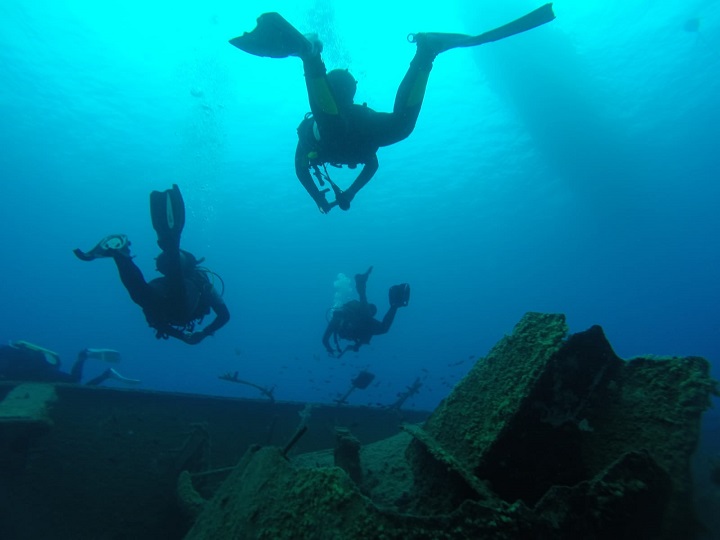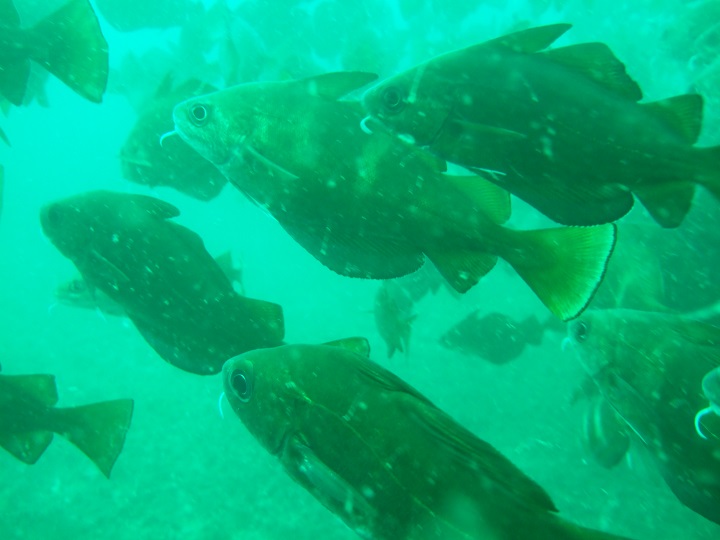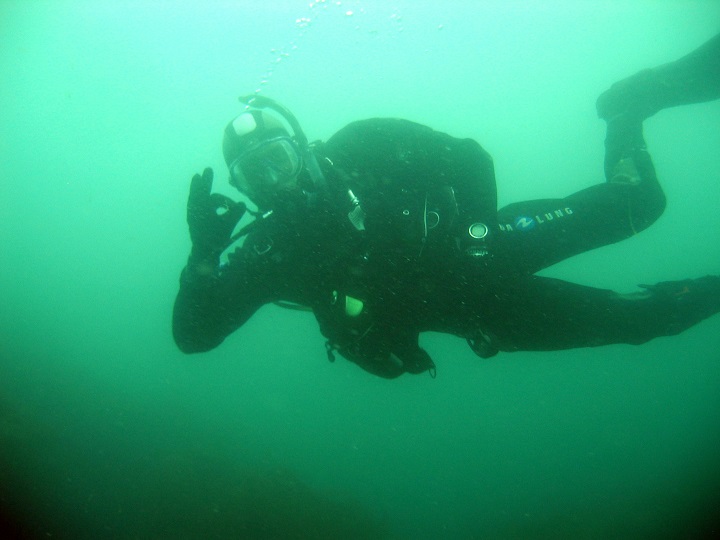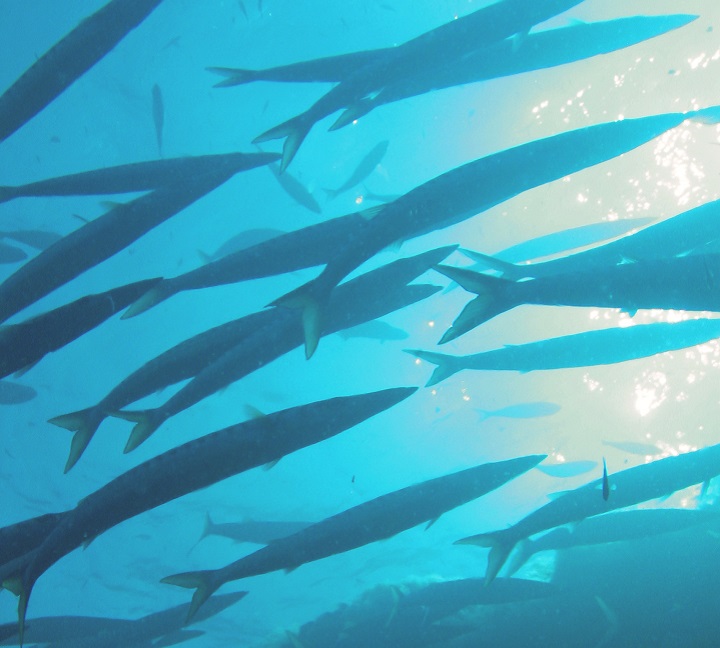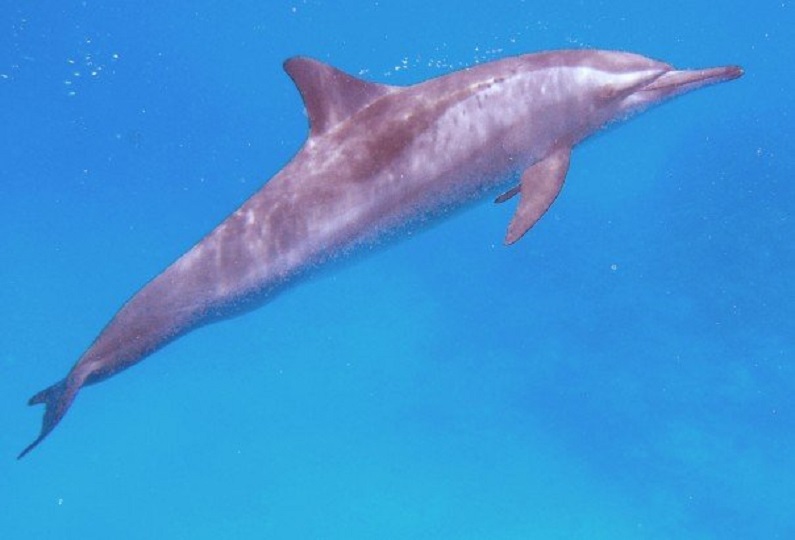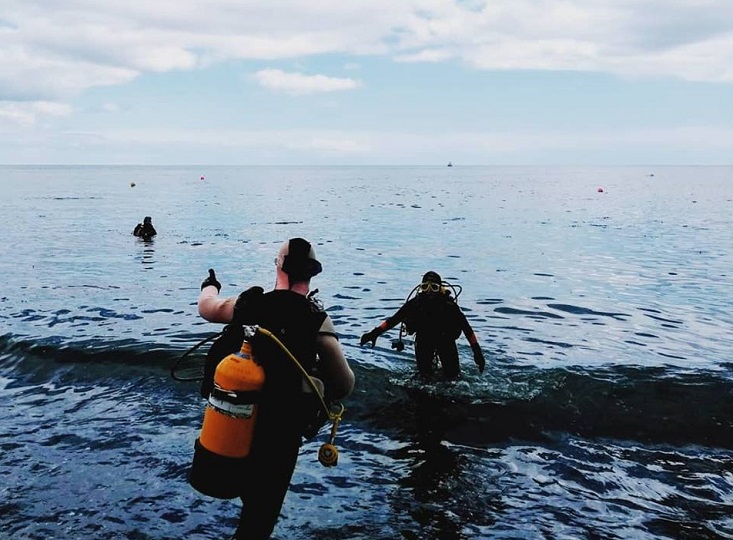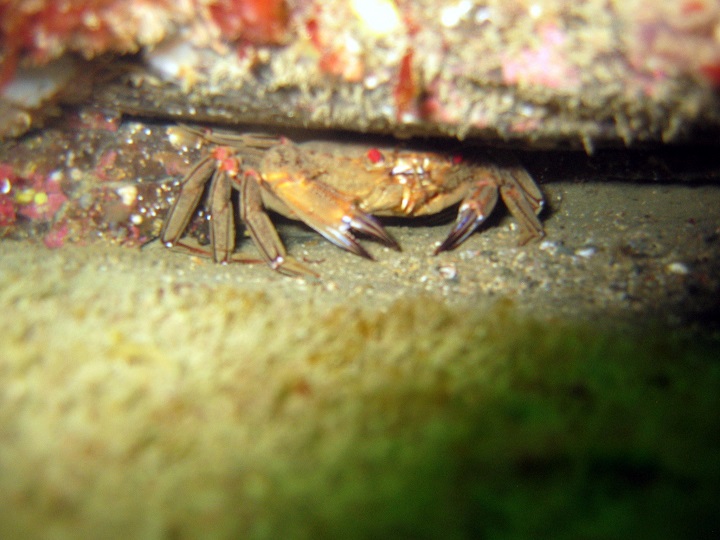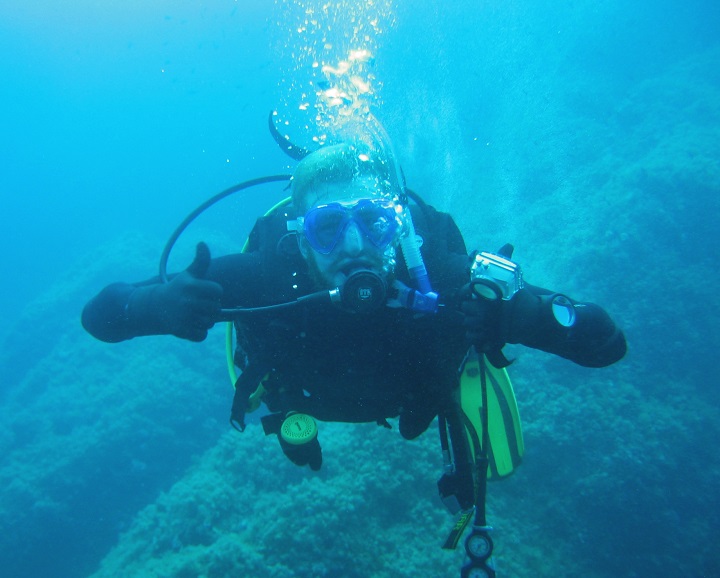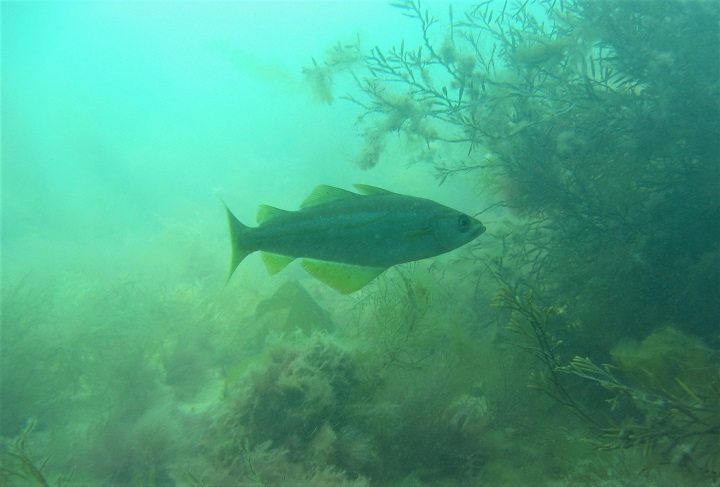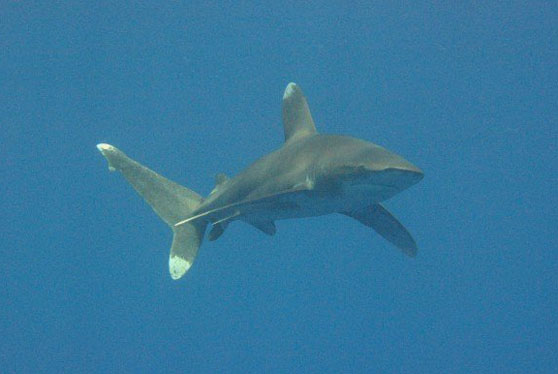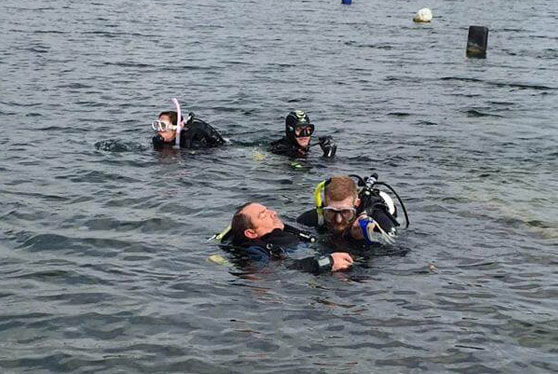Scuba divers describe the PADI Rescue Diver course as the most challenging, yet most rewarding course they’ve ever taken. Why? Because you learn to prevent and manage problems in the water and become more confident in your skills as a diver, knowing that you can help others if needed. During the course, you learn to become a better buddy by practicing problem-solving skills until they become second nature. Plus, the course is just fun – it’s serious, but still allows for lots of laughter in between the focused learning.
PADI (Junior) Adventure Divers who are at least 12 years old and have completed the Underwater Navigation Adventure Dive may enroll in a Rescue Diver course. You also need to have Emergency First Response Primary and Secondary Care (CPR and First Aid) training within the past 24 months. You can complete this training during the Rescue Diver course. Your instructor may also offer the PADI Emergency Oxygen Provider specialty diver course at the same time.
1. Improve Your Scuba Skills and Confidence Underwater
Divers describe the PADI® Rescue Diver course as the “most challenging, yet most rewarding course” and for good reason. You will learn to become a better buddy by practicing problem-solving skills until they become second nature. These skills will be put to the test, both on top of the water and underneath until you can complete them confidently. With skills and training comes confidence and that’s exactly how the Rescue Diver course will help build your confidence underwater.
2. Improve Your Underwater Navigation Skills
Navigation. It’s something that some of us were either able to conquer straight away or we just couldn’t quite get the hang of. During the Rescue Diver Course, your navigation skills will be tested as you learn how to navigate, search, and recover underwater. With plenty of practice throughout the course, your PADI Instructor will make sure you’re capable of navigating through any visibility!
3. Being Prepared For Any Emergency Situation
We have all learned about the possible emergencies that can arise from diving. But can you confidently say that you would know what to do in an emergency situation? That’s where the Rescue Diver course comes in. The Rescue Diver course also includes the Emergency First Response Primary and Secondary Care (CPR and First Aid) training. This training, in conjunction with your Rescue Diver training, will ensure you’re prepared for any medical emergency – on top of the water or underneath.
4. It’s Loads of Fun
While the Rescue Diver course is quite serious and focused, it’s also a lot of fun. Your Instructor will keep you on your toes throughout the course as you’re constantly surprised by different rescue scenarios. You can expect lots of laughter in between the focused learning, and of course some diving along the way – which is always fun!
5. Advance your search and recovery skills
Part of the Rescue course is learning how to search for lost items using different underwater search patterns. Increasing your navigation skills underwater is always a good thing as it will increase your comfort in the water and could come in handy the next time you drop something valuable over the side of the boat.
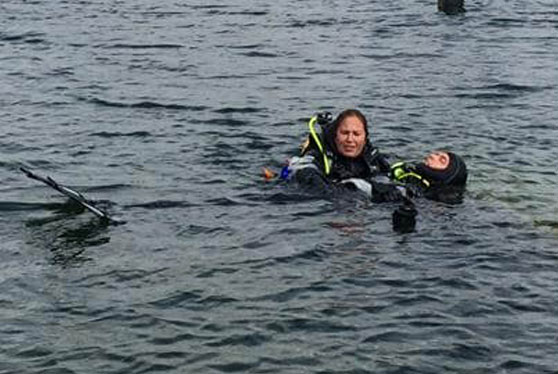

6. It’s the Last Course Before the PADI Divemaster Course!
If you’re interested in taking the next step and turning scuba diving into a career, then the PADI Divemaster course might be for you. The Rescue Diver course is the last scuba course that you will need to complete before you start your journey to become an underwater tour guide. The skills and knowledge learned in your Rescue Diver course will become the foundation of your Divemaster training. Don’t forget – you will also receive a shiny, new black certification card when you complete the PADI Divemaster course!
7. It’s Loads of Fun
While the Rescue Diver course is quite serious and focused, it’s also a lot of fun. Your Instructor will keep you on your toes throughout the course as you’re constantly surprised by different rescue scenarios. You can expect lots of laughter in between the focused learning, and of course some diving along the way – which is always fun!
What Rescue diver course should I take?
While the most widely used and recognized course is the PADI rescue diver course which we offer here at Underwater Adventures (click here for more details) all of the other agencies offer some type of course along with the same guidelines. SSI offers Diver Stress and Rescue, usually completed alongside their React Right course which is their first aid and CPR offering. SDI offers Rescue Diver and NAUI have a Rescue Scuba Diver and Advanced Rescue Diver course available. In the UK, BSAC’s Sports Diver course includes some rescue elements. Others to consider include the GUE Rescue Primer course, as well as CMAS Self-Rescue Diver and Rescue Diver.
Whats involved in the PADI rescue diver course?
The PADI Rescue Diver Course begins with theory, which covers everything from the psychology of rescue to accident management. You will even learn how to create your own Emergency Assistance Plan so you can always have one ready wherever and whenever you dive. You can do this portion of the course through online learning or through manual and DVD.
The first water skills you practice will review your self-rescue procedures. As I mentioned before, the Rescue Diver course is as much about saving yourself as it is others. Some of these skills will be ones you learned in your initial training, which offers a great way to refresh and develop your skills. You’ll then move on to complete 10 exercises, including assisting a panicked diver at the surface; how to quickly and efficiently search for a missing diver; surfacing an unresponsive diver; helping an unresponsive diver at the surface, and different techniques to respond to a diver from a boat or shore. The course will cover both minor and major emergencies and show a variety of techniques to address them. The course ends with some scenarios to help you put these skills into practice. Although the course is challenging, it’s also quite rewarding and a lot of fun.
When you’re considering Rescue, keep in mind that it’s not a professional rating — don’t feel that it’s out of reach for you. The course is flexible and there is no limit on how long it takes you to complete. Some of the skills can be physically challenging, so they may take many attempts to achieve. This is normal, and more practice will only make you better at the skills. Your Instructor will demonstrate various techniques for each skill to suit your physical ability, so you needn’t be a bodybuilder to complete them.
Once you obtain the rating, it’s extremely rewarding to know that you’re prepared to help both yourself and other divers in case of an emergency. Remember that although scuba diving has an excellent safety rating, just as in everyday life, accidents can happen. Become the person who can help prevent or deal with accidents, and you’ll become a happier, more confident diver in the process.
How do I become a PADI rescue diver?
If you are already a PADI advanced open water diver or the equivalent level from any other agency and have a first-aid certificate valid within two years just drop us a line and we can book you on to the next course. If you are not yet at that level of diver but want to aim to attain this level of a scuba diver, again just get in touch with us here at Underwater adventures and we can help you plan out a route through the courses that work best for you. You can contact us by following this link.
.png)



